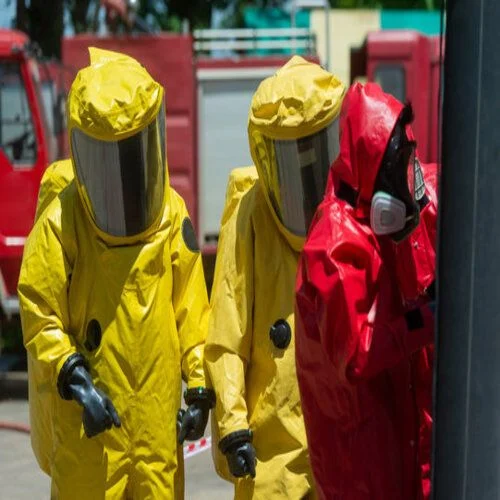
When most people think of crime scenes, the images that come to mind are often influenced by popular crime dramas on TV: the police, detectives, the coroner, and maybe even a forensics team sifting for evidence. But once the scene is cleared and the investigators are done, another crucial team steps in. They are the crime scene cleanup professionals. This article delves into the world of licensed crime scene cleanup services and their role in restoring order after chaos.

What are Crime Scene Cleanup Services?
Crime scene cleanup services, often called biohazard remediation, involve cleaning and sanitizing a site where a violent crime, accident, or unattended death has occurred. These professionals deal not only with the visible aftermath, like blood or other bodily fluids, but also potential pathogens and infectious materials that could pose a risk to future occupants.
Why is Licensing Important?
Professional Standards: Licensing ensures that these professionals adhere to the highest standards. They are trained to properly clean, disinfect, and dispose of biohazardous waste, ensuring that a site is genuinely safe for future use.
Safety Concerns:
These sites often contain biohazards that, if not handled correctly, could spread diseases or cause other health issues. Licensing guarantees that workers have been trained in the correct safety protocols.
Environmental Responsibility:
Licensed services ensure proper disposal methods to protect the environment from hazardous materials.
The Cleanup Process
Assessment: The first step is always to assess the scene to determine the extent of contamination.
Safety Preparations:
Workers wear personal protective equipment (PPE) to protect themselves from potential hazards.
Removal of Biohazards:
This involves cleaning up blood, tissues, and other bodily fluids, as well as any other contaminated items that cannot be sanitized.
Cleaning and Disinfecting:
This step ensures that any pathogens or potential infectious materials are eradicated.
Odor Removal:
Sometimes, residual odors can linger after a trauma scene is cleared. Professionals use specialized equipment to ensure that no traces remain.
Restoration:
This might involve repairs or reconstruction, depending on the extent of damage to the site.
Emotional Quotient:
Handling Grief with Professionalism
A lesser-discussed aspect of the job is the emotional toll it can take. Cleanup professionals licensed crime scene cleanup services sometimes work at sites where tragic events occurred, and they often interact with grieving families. Part of their training involves handling such situations with sensitivity and empathy.
Conclusion
Licensed crime scene cleanup services are the unsung heroes in the aftermath of a traumatic event. While their work might be less glamorous than that of the detectives or forensics teams seen on TV, it is equally essential. They ensure that spaces are safe for future occupants, all the while handling the emotional gravity of their jobs with utmost professionalism.